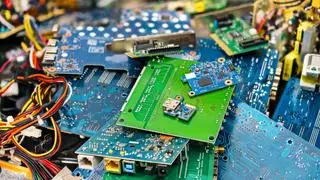When Haryana-based farmer Dharambir Kamboj returned to his village in Damla after an accident during his rickshaw pulling days in Delhi, little did he know that his penchant for inventions would lead him to a clean-technology innovation.
In 2017, the 59-year-old entrepreneur turned his invention into a company, Dharambir Food Processing Pvt Ltd., which he runs today along with his 31-year-old son and clocks over a crore of rupees in turnover. “Since childhood, I had an interest in inventing machines and when I visited some farmers in Ajmer who were using makeshift ways to process food, I saw the potential of an automatic food processor that would crush, pulp, deseedand extract juice.”
And that is what he went on to design —a food processor that along with the usual functions also mixes, pulverises, steams and pressure cooks. The machine has the capability of processing fruit, vegetables, seeds, herbs and flowers, making it equally capable of oil, gel and essential oil extraction. The machine was then patented and validated by the National Innovation Foundation.
Though Kamboj was getting good orders for his machine, the story turned into one of clean technology, when the company was cherry picked along with five other ventures for grants by Villgro Innovations Foundation and Council on Energy, Environment and Water (CEEW) in 2020, under their Powering Livelihoods programme aimed at boosting “India’s rural economy by scaling up the penetration of clean energy-powered appliances for livelihoods.”
Going solar
“It was their idea (Villgro and CEEW) and adapting the machine to run on solar power was not so difficult. When I was working on making it a hybrid model that could work on solar, batteries, a generator or electricity, I kept wondering why I had not thought of it before,” says Kamboj, thankful to the organisations for nudging him towards it. Today, it is bringing him accolades as well as export orders from Tanzania, Zimbabwe, Nigeria, Uganda, Kenya, Nairobi, and may even turn into a technology sale in Malaysia.
Local manufacturing
Meanwhile, Kamboj says that the big fish always try to eat the small fish, and he has had several large companies offering to buying him out. However, he and his son wish to grow the business independently and by manufacturing the machine in the village vicinity they are providing jobs and livelihood to many.
Kamboj makes machines in several sizes for different pockets. The smallest processes around 40 kgs in an hour and costs ₹60,000, while the big machines can process 200 kgs per hour and costs ₹2 lakh. His son Prince, who virtually runs the company, explains that shifting to solar has brought with it huge savings in electricity and more interest from different parts of the world.








Comments
Comments have to be in English, and in full sentences. They cannot be abusive or personal. Please abide by our community guidelines for posting your comments.
We have migrated to a new commenting platform. If you are already a registered user of TheHindu Businessline and logged in, you may continue to engage with our articles. If you do not have an account please register and login to post comments. Users can access their older comments by logging into their accounts on Vuukle.